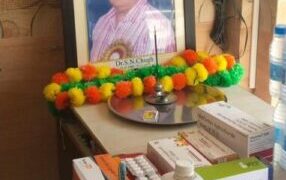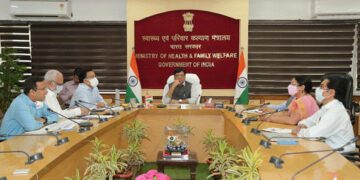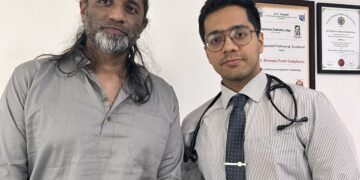By Health In Five Writer
The coronavirus cases in India are rising rapidly with the country already past the 50 lakh mark. India is the second-most affected country behind only the United States of America.
The Central Government on Tuesday (September 15) said there is no shortage of medical oxygen available in the country. Medical experts in many states have expressed concern over a shortfall in supply with number of Covid-19 cases increasing.
“As of this morning, we have an oxygen production capacity of 6,900 tonnes a day. While liquid medical oxygen used by Covid and non-Covid patients in the country is 2,800 tonnes, oxygen used for industrial use is around 2,200 tonnes. Still, there is a headroom of 1,900 tonnes,” said health secretary Rajesh Bhushan while briefing the media in New Delhi.
The health secretary advised States to have better facility-level inventory management to ensure hospitals do not run out of oxygen supply.
“We have also told States to set up a control room to monitor availability of oxygen on a day-to-day basis. Most States and hospitals have contracts signed with medical oxygen makers and suppliers for dedicated supply a high level,” he said.
Rajesh Bhushan asked the states to replenish the stock in time so that there is always supply available for 2-3 days. He also said the Centre has set up a virtual control room with officials from ministries of health and industries, department of chemicals and pharmaceuticals, and others as members to help the States in dire need.
With the daily number of Covid-19 cases touching close to 1 lakh a day, the states are already rushing to secure oxygen supply for those patients who suffer from severe forms of the disease. According to data revealed by the health secretary, nearly 6 per cent of hospitalised patients, including those in intensive care and on ventilator, require oxygen.
Meanwhile, discussions are still on to work out a mechanism for clinical trials of the Russian Sputnik V vaccine. The Indian Council of Medical Research (ICMR) director general Balram Bhargava said published studies have shown that the vaccine is safe and capable of generating immune response.










































